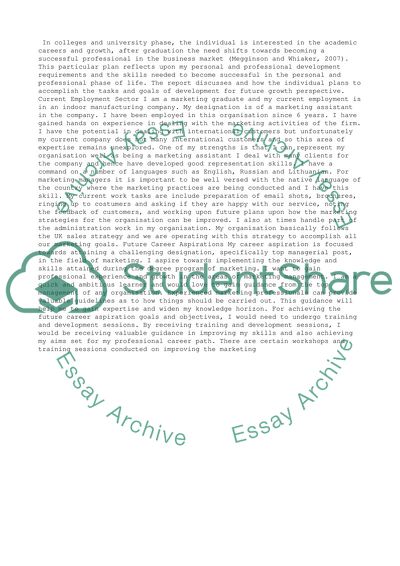Cite this document
(“Personal & Professional Development Plan Essay Example | Topics and Well Written Essays - 3750 words”, n.d.)
Retrieved from https://studentshare.org/business/1397452-personal-development
Retrieved from https://studentshare.org/business/1397452-personal-development
(Personal & Professional Development Plan Essay Example | Topics and Well Written Essays - 3750 Words)
https://studentshare.org/business/1397452-personal-development.
https://studentshare.org/business/1397452-personal-development.
“Personal & Professional Development Plan Essay Example | Topics and Well Written Essays - 3750 Words”, n.d. https://studentshare.org/business/1397452-personal-development.


